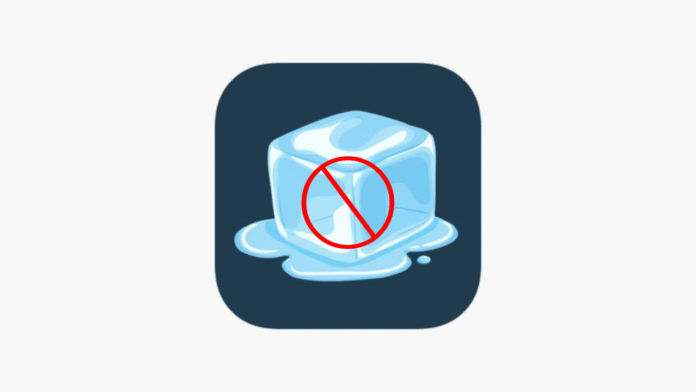Apple has officially banned and removed the ICEBlock app from its App Store following direct pressure from the U.S. government. The move has stirred debate about digital privacy, law enforcement safety, and free speech in the tech world.
What Is the ICEBlock App?
The ICEBlock app was a location-based platform that let users report and receive alerts about nearby U.S. Immigration and Customs Enforcement (ICE) activity.
Often described as a “Waze for ICE sightings,” the app helped users stay informed of potential raids or enforcement zones in real time.
Main Features
-
Anonymous reporting of ICE sightings
-
Alerts within a 5-mile radius
-
Reports that expired automatically after a few hours
-
No login or personal data collection required
The app gained popularity among immigrant communities and civil rights groups who saw it as a safety and awareness tool rather than one meant to obstruct law enforcement.
Who Created the ICEBlock App?
The ICEBlock app was developed by Joshua Aaron, a U.S.-based technologist and activist. He designed the app to promote transparency and community safety for vulnerable groups.
Aaron claimed the app’s purpose was informational, not confrontational, and denied that it exposed any officer identities or real-time tracking.
Why Did Apple Remove ICEBlock?
In October 2025, Apple banned the ICEBlock app, citing “objectionable content” and “safety risks to law enforcement.” The company stated that it received official communication from law enforcement agencies, prompting its removal.
“Based on information from law enforcement about safety risks associated with ICEBlock, we have removed it and similar apps from the App Store.” — Apple spokesperson (Reuters)
Was It Banned Due to Government Pressure?
Yes. Reports confirm that the U.S. Department of Justice (DOJ) and Homeland Security officials directly pressured Apple to take action against ICEBlock.
Government’s Official Reason
-
The app allegedly endangered ICE agents by revealing enforcement activity zones.
-
Officials argued it could interfere with federal operations or “aid evasion of immigration law.”
-
U.S. Attorney General Pam Bondi said, “The app puts ICE agents at risk just for doing their jobs.”
-
Homeland Security Secretary Kristi Noem called the app a “potential obstruction of justice.”
While the government claimed safety concerns, critics say the move reflects censorship and political influence on Big Tech.
The Free Speech Debate
The ban on ICEBlock has ignited global discussions around free speech, data transparency, and government overreach.
Digital rights groups argue that the app merely crowdsourced public information and did not share sensitive data. They warn that government-driven bans could set a dangerous precedent for censorship in the U.S. tech ecosystem.
Meanwhile, Apple maintains it followed its App Store policy against apps that “encourage harm or risk to individuals or groups.”
Will ICEBlock Return?
As of now, ICEBlock remains unavailable on iOS, but developer Joshua Aaron has hinted at releasing a web-based version beyond Apple’s ecosystem.
He stated:
“The mission for transparency and community safety isn’t going away. ICEBlock will live on, even if not in an app store.”
ICEBlock App Overview
| Field | Details |
|---|---|
| App Name | ICEBlock |
| Founder / Developer | Joshua Aaron |
| Purpose | Report and alert users of ICE agent sightings |
| Removed By | Apple Inc. |
| Ban Date | October 2025 |
| Ban Reason | Safety risks, objectionable content |
| Government Involvement | U.S. DOJ & Homeland Security |
| Current Status | Removed from App Store |
FAQs
Q1. Why did Apple ban the ICEBlock app?
Apple banned ICEBlock, citing law enforcement safety risks and objectionable content, following government complaints.
Q2. Did the U.S. government pressure Apple to remove it?
Yes. The DOJ and Homeland Security requested Apple to remove ICEBlock over alleged threats to ICE agents.
Q3. Who created the ICEBlock app?
Joshua Aaron, a U.S.-based developer and activist, built the app to promote transparency and awareness.
Q4. What was ICEBlock used for?
It allowed users to report and receive alerts about ICE activities in nearby areas anonymously.
Q5. Can ICEBlock still be downloaded?
No. It’s unavailable on iOS, but a web version may launch soon.
Conclusion
The ICEBlock ban by Apple marks one of the most high-profile cases of government influence on app policy enforcement. While Apple cites legitimate safety concerns, the debate over privacy, activism, and state pressure continues to dominate digital rights discussions.
For now, the ICEBlock app ban stands as a cautionary example of how quickly technology, politics, and security can collide in the modern digital era.
Related Articles
-
App vs .io: Which Domain Extension Is Right for You? – Learn the differences between .app and .io domains and choose the best one for your project.
-
How to Get Gilgamesh on Anime Vanguards – Step-by-step guide to unlocking Gilgamesh in the Anime Vanguards game.














